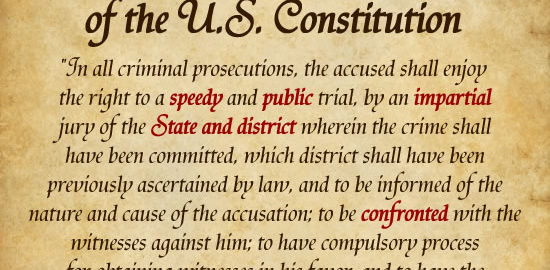United States v. Haymond
No. 17-1672
U.S. Supreme Court
Decided: June 26, 2019
ISSUE
Whether 18 U.S.C. §3583(k)’s requirement that a district court impose a mandatory minimum prison sentence by a preponderance of the evidence for certain offenses committed during supervised release violates the constitution’s guarantee of a trial by jury.
HOLDING
The U.S. Supreme Court held that the 5-year mandatory minimum sentence under 18 U.S.C. §3583(k) is unconstitutional unless the charges can be proven by a jury beyond a reasonable doubt.
FACTS OF THE CASE
Haymond was found guilty of possessing child pornography by a jury and was sentenced to 38 months in prison followed by 10 years of supervised release. During his supervised release, the government discovered what appeared to be child pornography on Haymond’s phone. As a result of the violation, the government sought additional incarceration for Haymond.
A district judge found that Haymond knowingly possessed the images depicting child pornography by a proponderence of the evidence. Under 18 U.S.C. §3583(k) of the Sentencing Reform Act of 1984, a judge is required to impose a minimum prison sentence of five years where a defendant has violated supervised release by committing certain offenses. Relevant to this case, one of those listed offenses is possession of child pornography. Although reluctant to do so, the district judge imposed the mandatory 5-year sentence.
The Tenth Circuit found that §3583(k) violated the Fifth and Sixth Amendments, acknowledging that while a jury previously convicted Haymond by a reasonable doubt resulting in a 0-10 year sentence, §3583(k) allowed Haymond to face a higher mandatory minimum only by a judge’s finding of a preponderance of the evidence. This, the Tenth Circuit held, violated Haymond’s constitutional right to a trial by jury. Haymond was resentenced without regard to §3583(k)’s provisions, and the U.S. Supreme Court was asked to resolve the question of the statute’s constitutionality.
COURT’S ANALYSIS
The Fifth and Sixth Amendment guarantee the accused the right to a trial by an impartial jury and due process of law in criminal proceedings in the United States. A jury’s finding of guilt must also be proven beyond a reasonable doubt.
Only after a jury finds a defendant guilty of an offense beyond a reasonable doubt may the judge impose a penalty within the range allowed for that offense. The Supreme Court recognizes that “even when judges [enjoy] discretion to adjust a sentence based on judge-found aggravating or mitigating facts, they [cannot] ‘swell the penalty above what the law [provides] for the acts charged.’” 588 U.S. ___ (2019) quoting Apprendi v. New Jersey, 530 U.S. 466 at 519 (Thomas, J., concurring).
Here, §3583(k) permits just that. Only as a result of the district judge’s finding of the defendant’s guilt by a preponderance of the evidence is the five-year mandatory minimum imposed. Contrary to the government’s argument, this new sentence was not authorized by the jury’s verdict.
The Supreme Court already held a similar statutory scheme allowing judges to impose sentences above the allowed maximum unconstitutional. In Apprendi v. New Jersey, a judge sought to impose a longer sentence than the prescribed maximum after a jury trial pursuant to a statute that permitted him to do so under a preponderance of the evidence standard. The Court held this scheme unconstitutional and later applied the same rule when it held a similar sentence enhancement unconstitutional in Alleyne v. United States, 570 U.S. 466.
Section 3583(k) essentially permits district courts to impose a new and potentially harsher punishment for a new offense. By allowing a judge to increase “‘the legally prescribed range of allowable sentences’ [is] in violation of the Fifth and Sixth Amendments.” 588 U.S. ___ (2019) (quoting Alleyne at 115). The Supreme Court vacated Haymond’s judgment, holding §3583(k) unconstitutional.
